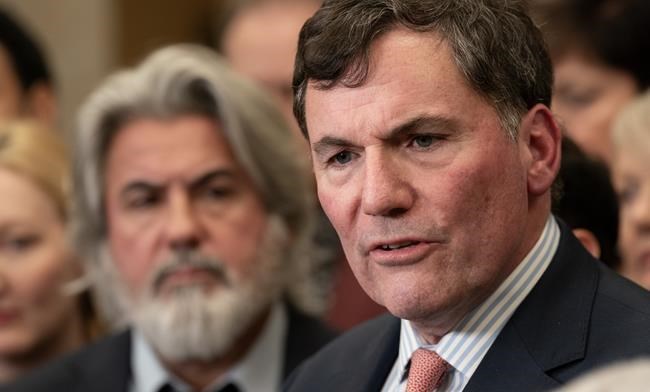OTTAWA — The federal government is earmarking $28 million in new money to help fight the export of stolen vehicles.
The Liberal government said Wednesday the money will give the sa╣·╝╩┤½├Į Border Services Agency more capacity to detect and search containers with pilfered autos.
The funding will also enhance collaboration and information sharing with partners across sa╣·╝╩┤½├Į and internationally to identify and arrest those committing the crimes, the government added.
The announcement comes on the eve of a national summit on auto theft that will bring together government officials, industry leaders and law enforcement representatives from across the country.
It also follows persistent pressure from the federal Conservatives, who have been pitching ideas this week to deal with the problem.
The federal government says an estimated 90,000 cars are stolen annually in sa╣·╝╩┤½├Į, resulting in about $1 billion in costs to Canadian insurance policy-holders and taxpayers.
Auto theft is viewed as low risk with high profit, and thieves often track desirable, newer models of SUVs or trucks from public spaces to owners' homes, where they use sophisticated electronic devices to gain access to the vehicle, the government says.
Stolen vehicles are then either exported or dismantled for their parts, like catalytic converters that can be worth $800 to $1200 alone, it adds.
Most stolen autos shipped abroad are destined for Africa and the Middle East, according to the government. Some stolen vehicles also remain in sa╣·╝╩┤½├Į, allowing other crimes to be committed with them.
Auto theft "increasingly involves organized crime groups, and the proceeds of these thefts are used to fund other illegal activities," the government said Wednesday in announcing the new funding.
"There is no single solution to this complex problem."
Public Safety Minister Dominic LeBlanc said Wednesday he looks forward to discussions Thursday with organizations from across sa╣·╝╩┤½├Į on "what other additional measures we can take collectively."
Innovation Minister François-Philippe Champagne said one avenue is to try to block the technology car thieves are using, adding the summit meeting is not simply a show.
"This is about concrete action."
This report by The Canadian Press was first published Feb. 7, 2024.
The Canadian Press



